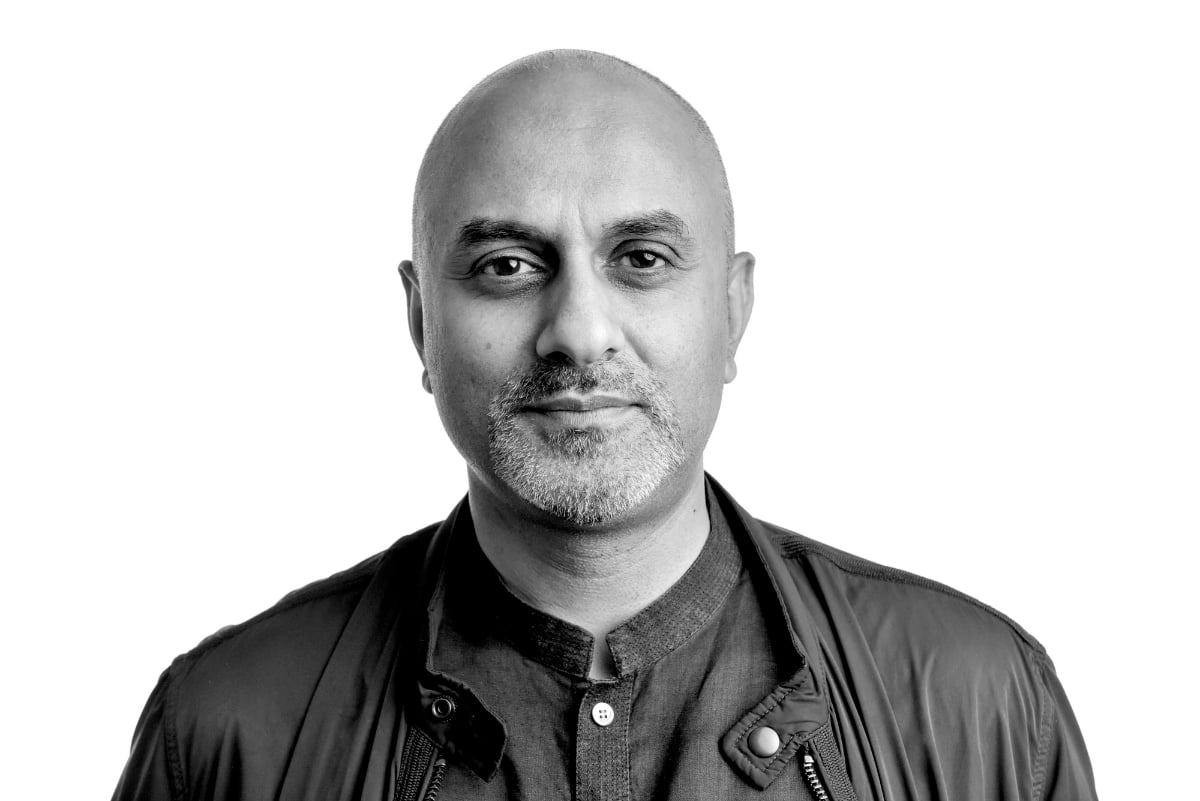Skinder Hundal reveals the people who have inspired a career that is international, intersectional and truly multicultural.

Photo: Joel Chester Fildes
An inherited sense of positivity and family unity were the foundation and building blocks of my character and formed my strong interest in culture.
Growing up in a Punjabi immigrant family in the UK I saw how my parents unified and engaged in a society alien to them. Each weekend there would be vibrant music, family VHS film screenings, sizzling cuisine and guests dancing in the living room. My mother and sister Sherry were at the heart of these activities. We were in regular contact with uncles, aunties and cousins in the UK, India and US, who were full of joy and hugely influential for me. Those were happy days, despite the racism at that time. Later in life, the trauma of racism would be semi-resolved by championing cultural programming with a strengthened purpose.
Recently my purpose wobbled as I lost my sister Sherry to coronavirus. Within a month my mother was gone too. These heart-wrenching moments eventually strengthened my love and appreciation of life, unearthing what my mother and sister both gave me. Today I keep them alive in all I do.
My time at Nottingham Trent University was about discovering self, growing into a young adult and encountering many different people via parties, clubs and societies. Abi Giddings, a suave and striking Indo-Caribbean, was a textiles student in the Arkwright and Bonington art blocks, which were far more interesting than my engineering school. It was Abi who planted the seed to step away from the crowd and develop a distinct presence where art was central to culture.
After university, I drifted into the Hyson Green neighbourhood in Nottingham. I became a volunteer for Nottingham Mela, produced by Apna Arts in the Nottingham Art Exchange (later the New Art Exchange). The festival was run by Parbinder Singh, a pioneering youth and community leader. He was political, radical and an inclusive socialist, with a focus on bringing younger South Asian communities together. He had organised the first outdoor South Asian Arts Festival, featuring the incredible singer Nusrat Fateh Ali Khan Qawwali and Bhangra legend Malkit Singh.
The Prime Minister and Deputy Leader of the Opposition both wrote to Pabs to mark this historic moment. It was here I started to determine my creative and cultural ID, meeting brilliant cultural activists such as the late Shad Ali, Nadeem Haider, Pammi Singh, Bubs Kumar, Sukhy Johal, Dave Thomas, Tasleem Iqbal, Rico and Sam Grewal. Pabs was an encouraging and engaging force who created an empowering environment where I really felt I belonged. This time at Apna Arts introduced a playful consciousness that inspired my journey, seeing arts as the vehicle for building community and lasting connection that continues in my cultural relations work at the British Council.
My tabla guru, based at Midlands Arts Centre, was and still is an incredible force. Ustad ji Harjinder explained the artist’s struggle and purpose and how learning via the extraordinary ‘jadu’ (magic) of rhythm, as he would refer to it, can be fun and even help us with our life’s struggles. Harjinder introduced me to ancient Indian rhythm cycles. They were both mind boggling and relevant to modern times. I felt like I had been shielded from this knowledge. Looking back, my education was narrow, missing vital histories and references from diasporic identities.
It was via Harjinder and learning tabla that I would meet Piali Ray and Ranjit Sondhi who ran Sampad, the British-Asian arts charity where I professionalised my role in the arts. Piali and Ranjit allowed me to experiment and learn about programming and leadership. Via complex programmes such as Aarohan Cultural Leadership and Dance Intense, I hosted and supported great artists such as Aakash Odedra, Ravi and Anoushka Shankar, Zakir Hussain, Soumik Datta and Kabir Bedi. These conversations with thinkers and artists fostered a new ambition to bring a more ecological and inclusive approach to arts. I always remember what Ranjit said as I left for Nottingham: “To be a great leader you have to sometimes be silent and even follow – but know what you stand for.”
Writer and curator Ekow Eshun was my guiding light whilst in Nottingham. Ekow, the first black Director of the Institute of Contemporary Arts and Chair of the Fourth Plinth, shared an international, third-eye perspective which cemented core ideas for me. I came to understand how central the voices of diaspora people of colour are to the UK. The arts sector, which draws so much inspiration from life, must recognise wider perspectives if it is to remain relevant in a global ecology. Equality and inclusion are not just words – they represent a way of being to create stimulating ideas, add value and create long-lasting change.
Skinder Hundal is Director of Arts at British Council.